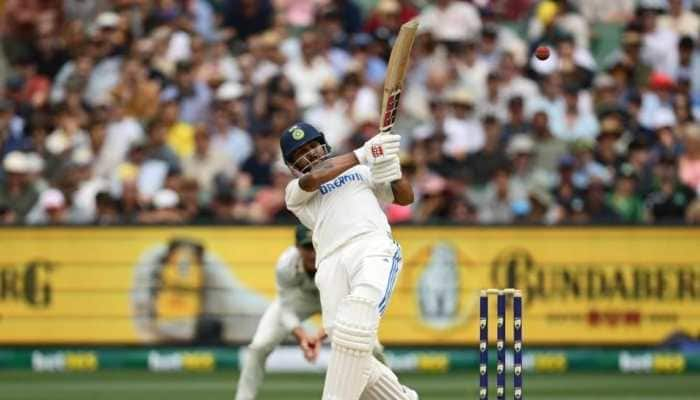Aerosols droplets can travel in air for 10 metres: Centre warns in new COVID-19 advisory
Centre has issued new guidelines to check Covid-19 spread. It has been issued by the Centre's Scientific adviser. The new advisory stresses that wearing masks, maintaining distance, adequate sanitation and proper indoor ventilation are key to stopping the coronavirus.
- Stop the Transmission, Crush the Pandemic: Centre has issued new guidelines to check Covid-19 spread
- It has been issued by the Centre's Scientific adviser
- The new advisory stresses that wearing masks, maintaining distance, adequate sanitation and proper indoor ventilation are key to stopping the coronavirus.
Trending Photos
)
New Delhi: In order to strengthen the fight against the COVID-19 pandemic, the Office of the Principal Scientific Adviser to the Government of India has issued new guidelines to check the spread of Covid-19 across the country.
Smaller aerosol particles can travel in the air for 10 metres, the government warned in its new "easy to follow" guidelines on fighting Covid.
The new COVID-19 guidelines stressed that wearing masks, maintaining distance, adequate sanitation and proper indoor ventilation is key to stopping the coronavirus. The advisory has been issued by the Union government’s principal scientific adviser K Vijay Raghavan’s office.
“Stop the Transmission, Crush the Pandemic – Masks, distance, sanitation and ventilation to prevent the spread of SARS-CoV-2 virus,” the new advisory says.
The advisory highlights the important role well-ventilated spaces play in diluting the viral load of infected air in poorly ventilated houses, offices etc. Ventilation can decrease the risk of transmission from one infected person to the other. pic.twitter.com/9oc52EtGAv — ANI (@ANI) May 20, 2021
“As the pandemic rages in India, we need to once again remember that simple tools and practices can reduce the spread of SARS-CoV-2 virus (coronavirus). COVID-19 Home Testing Kit Approved by ICMR for Symptomatic People and Close Contacts of Coronavirus Patients,’’ the advisory read.
Poper ventilation & wearing a mask
The advisory highlights the important role well-ventilated spaces play in diluting the viral load of infected air in poorly ventilated houses, offices etc.
Ventilation can decrease the risk of COVID-19 virus transmission from one infected person to the other. Just as smells can be diluted from the air through opening windows and doors and using exhaust systems, ventilating spaces with improved directional airflow decreases the accumulated viral land in the air, reducing the risk of transmission.
“Ventilation is a community defence that protects all of us at home or at work. Introducing outdoor air in offices, homes and larger public spaces is advised. Measures to improve ventilation in these spaces must be taken up on urgent priority in urban and rural areas alike, recommendations for hutments, homes, offices and large centralised buildings are given,’’ the advisory further said.
Simple strategic placement of fans, open windows and doors, even slightly open windows can introduce outdoor air and improve the air quality inside. The introduction of cross ventilation and exhaust fans will be beneficial in curtailing the spread of the disease, it added.
Aerosol and droplet transmission
Saliva and nasal discharged in the form of droplets and aerosols by an infected person is the primary mode of virus transmissions, the document said, adding that an infected person without symptoms also transmit the virus.
"Just as smells can be diluted by ventilation, the dangerous concentration of the virus can be reduced by ensuring that outdoor air flows in," it said.
Stop Transmission, Crush Pandemic’ Guidelines
-In buildings with central air-management systems improving central air filtration /increased filtration efficiency is especially helpful when enhanced outdoor air delivery options are limited.
-In offices, auditoriums, shopping malls etc. use of gable fan systems and roof ventilators are recommended.
-Frequent cleaning and replacement of fiters is highly recommended.
-Saliva and nasal discharged in the form of droplets and aerosols, by an infected person while exhaling, talking, speaking, singing, laughing, coughing or sneezing etc is the primary mode of COVID-19 virus transmissions, in infected person who shows no symptoms also transmit the virus.
Aerosols and droplets are the key transmission mode of the virus. Aerosols can be carried in the air up to 10 meters: Office of Principal Scientific Adviser to GoI — ANI (@ANI) May 20, 2021
-People without symptoms can spread the virus. People should continue wearing a mask, wear double masks, or an N95 mask.
-The SARS-CoV-2 virus infects a human host where it can multiply, in the absence of the host it cannot survive, and stopping the transmission of the virus from a person to another person will decrease the infection rate of the disease to a level where it can eventually die.
-This can be achieved only with the support and cooperation of individuals, communities, local bodies and authorities. Use of masks, ventilation, distancing, and sanitation, the battle against the virus can be won.
Stay informed on all the latest news, real-time breaking news updates, and follow all the important headlines in india news and world News on Zee News.
Live Tv







)
)
)
)
)
)
)
)
)
)
